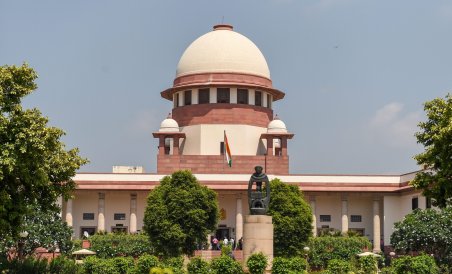
A majority of the five-judge Supreme Court Constitution bench has ruled that there is no unqualified right to marriage for LGBTQIA+ couples and that only legislation can grant civil unions legal status. On May 11 of this year, the verdict that had been reserved by the bench that included Chief Justice of India DY Chandrachud, Justices Sanjay Kishan Kaul, S Ravindra Bhat, Hima Kohli, and PS Narasimha was given. However, the court ruled that the judgment will not restrict the ability of queer people to form relationships. The Special Marriage Act (SMA) challenge on the grounds of under-classification is not supported, according to the supreme court.
These positions were shared by Justices Ravindra Bhat, Narasimha, and Hima Kohli, but not by Chief Justice Chandrachud or Justice Sanjay Kishan Kaul. The bench made it clear that there were four judgments in the case at the beginning of the judgment. CJI Chandrachud, Justice Sanjay Kishan Kaul, Justice Ravindra Bhat, and Justice Narasimha each presided over one, with the last being handled by CJI Chandrachud. According to his ruling, the CJI gave the Union and State governments the mandate to make sure there is no discrimination against the LGBTQ community.
The CJI said it should be ensured that there is no discrimination in access to goods and services to the queer community. There is a need to sensitise public about queer rights. The Union and state Governments must create a hotline for queer community to prevent harassment. The government must create safe houses for queer couple. Government also must ensure inter-sex children are not forced to undergo operations.